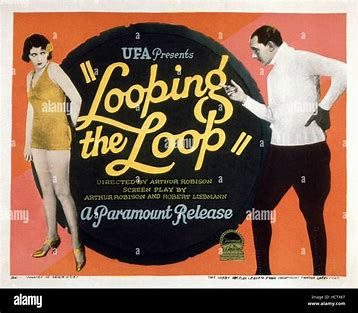Arthur Robison’s 1928 silent film Looping the Loop is
never less than sturdy, and often captivating, rooted in a well-lived-in sense
of circus life (it’s a sometimes disquietingly good source of footage of now-taboo
sights such as performing bears and elephants). The film is capped by its protagonist
Botto the clown, his white face and bald head and baggy clothes making an
indelible visual impact, at once hilarious and poignant and somewhat unnerving,
especially as his act involves a dummy that’s his exact double, and that in the
film’s most nightmarish sequences appears to be the more alive of the two. Botto
is consumed with the idea that a woman could never fall for a man she knew to
be a clown, and therefore tells his younger love Blanche that he’s an engineer
who has to work at night; despite all his efforts, she falls for a colleague of
his, the acrobat Andre (Warwick Ward), enthusiastically depicted as one of the
most single-minded and shameless horndogs in the history of film. The title
refers to an ambitious set-piece into which Andre pulls the untrained Blanche
as an assistant – one of the film’s most striking reveries (which would seem
like a deliberate echo of King Kong if this movie hadn’t been there
first) has a giant Botto towering over the apparatus, his fist clenching around
the tiny Andre, before dropping him to the ground and crushing him underfoot.
The film flags at times, but has a good feel for the limited choices available
to women - Blanche’s parents all but push her into the arms of the blandly well-to-do
engineer, her ultimate return to him appearing as much a fatigued strategic retreat
as a heartfelt realization of where her heart lies - and a very enthusiastic
performing dog, who unsurprisingly lands the closing shot.




